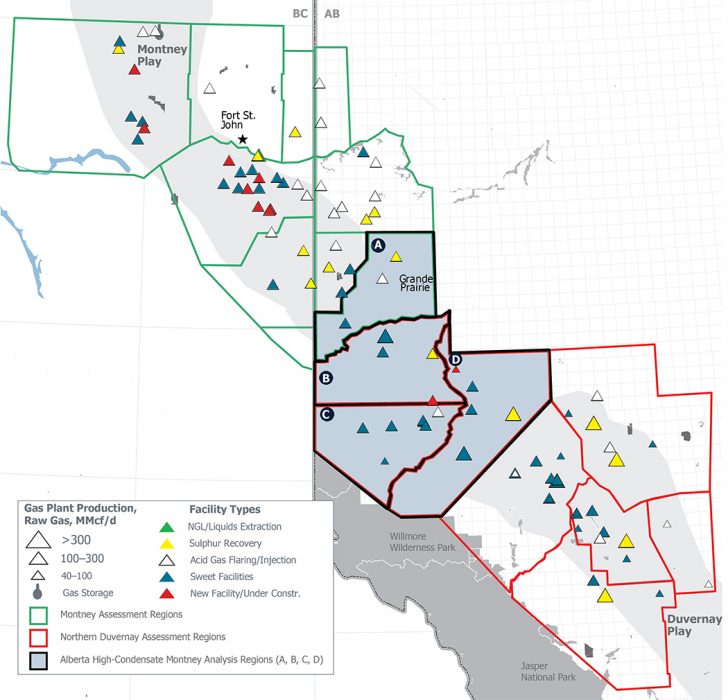Sustainably improve operations and reduce costs of your transmission pipeline systems, while meeting Integrity Management Program requirements, with normalized comparisons.
In today’s competitive market with near-zero tolerance for environmental impacts, it is critical to maintain pipeline integrity, while improving cost performance. However, meeting Integrity Management Program requirements is one of the most significant cost drivers. Solomon's Worldwide Natural Gas Transmission System Performance Analysis (NGTS Study) is designed to help natural gas transmission system operators improve operational performance, reduce costs, and maintain pipeline integrity in a sustainable manner.
We assumed that all our assets operated similarly. When we received our results, we found significant differences, which we used to commission a series of improvements to bring all the assets up to the same operating levels. NORTH AMERICAN STUDY PARTICIPANT
Companies that participate in Solomon’s NGTS Study typically realize 20% annual operating expense (OpEx) savings. Leverage a vetted, proprietary performance database of: >70 transmission systems worldwide and >300 transmission performance metrics.
- How does my performance compare; is it significantly different from others?
- How do my pipeline integrity costs compare to those of competitors?
- How effective is my pipeline Integrity Management Program?
- Are you under- or over-investing in pipeline integrity?
- How do my reliability and maintenance costs compare to the top performers?
- What is the value of closing my performance gaps compared to peers?
- How do I judge the performance of joint-venture partner operators?
- Are you realizing proportional improvements in the reduction of ruptures and leaks?
- Are you investing sufficiently in engineering resources to track and optimize prime mover energy consumption?
- EPC™, which represents combined pipeline, compression, and meter station assets
- Utilized capacity (Tcf-mi or m³-km)
- Diameter-length/size groups
- Average pipeline diameter
- Transportation modes
- Geographical locations
The NGTS Study delivers two perspectives: the big picture of where you stand compared to peers; and the details you need to take an informed and targeted approach to improving performance. Normalized comparisons are used to assess your transmission system performance, both internally and relative to top performers, and provide an in-depth analysis of top opportunities and estimates of potential cost optimization. The analysis gives a true view of where you stand and recommendations to achieve operational excellence in maintenance cost, pipeline integrity, management non-volume-related expenditures (MNVE), personnel costs, work hours, energy consumption, downtime, reliability, safety, and more.
Solomon experts understand that all transmission systems are different. To successfully compare operational performance between these diverse systems, operating data is analyzed using three divisors: volume-length, diameter-length, and, more significantly, Equivalent Pipeline Complexity (EPC™). EPC normalizes measured pipeline performance data across a broad spectrum of transmission system configurations, providing an equitable basis for comparing diverse sets of systems.

Figure 1. Expenditure Comparisons, USD/Tcf-mi

Figure 2. Expenditure Comparisons, USD/k EPC
Unlike other industry metrics and volume divisors, our patented EPC divisor accounts for the physical design and operational characteristics of each facility (i.e., pipeline length and diameter, number of compressor stations, right-of-way lengths, and meter regulator stations). A volume-based divisor will show that large-diameter pipelines are the best performers (Figure 1). On the other hand, Solomon’s EPC will show the same pipeline “A” as only a 3rd quartile performer (Figure 2.). This “apples-to-apples” comparison enables more accurate identification of the areas where your transmission systems could improve.
Why Participate?
- Quantify performance improvement opportunities through a gap analysis.
- Compare systems with diverse operating configurations, system sizes, terrains, power ratings, products, and complexities.
- Maintain pipeline integrity while reducing costs.
- Compare performance at the transmission system level and across geographic regions.
- Determine competitive industry position.
- Establish performance targets and measure progress.
- Assess future performance impact of planned capital improvements/modifications.
- Demonstrate performance/capability to financial institutions and security analysts.
Study Deliverables
Study Participants receive the following:
- Quantified gap analysis provided on OpEx, personnel cost, personnel work hours, personnel work vs compensation, and energy consumption.
- Executive summary presentation with actionable insight supported by study data.
- Customized diagnostic analysis, including conclusions, recommendations, and valued opportunity potential for each asset.
- Private debriefings with Solomon operations advisors.
Performance is assessed across the following areas:
- Operations, technical support, and administrative costs
- Maintenance costs and equipment utilization
- Pipeline integrity, inspection practices, and associated costs
- Personnel effectiveness
- Compressor unit reliability
- Other safety and reliability indicators
Frequently Asked Questions (FAQ)
A: The Worldwide Natural Gas Transmission System Performance Analysis (NGTS Study) uses Solomon’s proprietary Comparative Performance Analysis™ (CPA™) methodology to provide a comprehensive and normalized assessment of transmission system performance, improvement opportunities and estimates of potential cost optimization relative to best performers and selected peer groups. The NGTS Study is designed to help natural gas transmission system operators improve performance in a sustainable manner.
A: EPC (Equivalent Pipeline Complexity) is a patented regression analysis developed of key pipeline system characteristics that could best predict manageable non-volume-related expenditures (MNVE) for any natural gas transmission system. EPC allows the comparison of diverse pipelines systems by normalizes bias in measured pipeline performance.
A: Solomon uses normalized comparison and historical databases of performance metrics to analyze and report opportunities on program management, facility modification, condition monitoring, and repairs/reconditioning/replacement.
A: In most Solomon studies, an energy efficiency metric—Energy Intensity Index™ (EII®)—is provided based on a combination of factors that drive energy consumption for that industry. The complexities of energy utilization in the natural gas transmission industry make the possibility of an Energy Index for each pipeline system unlikely. However, a valid correlation was successfully developed to determine the average heat rates for each prime mover type in the study to calculate Energy Efficiency.
The NGTS Study covers onshore natural gas transmission pipeline systems. The study scope includes metering at custody transfer, pipeline operations, and compression. Related underground storage site facilities and operating costs are excluded from the study. Gathering systems and offshore pipeline systems are generally not included, but provisions can be made to include them if they are an integral part of your cost structure, and the facilities represent less than 5% of the total cost of operating the business unit. Liquefied natural gas (LNG) facilities and natural gas processing facilities are not included in the study.

Learn How You Can Participate
Our commitment is to enable client success by delivering data-driven insight into operational excellence and help guide clients to take the steps necessary to accelerate the realization of benefits. Through our patented methodology for normalizing performance data across a broad spectrum of transmission system configurations, we can assess your performance using a number of key performance indicators (KPIs), comparing your operations to others on an equitable basis. The resulting data, along with the world’s largest database of energy industry performance metrics, help participants achieve sustainably operational excellence. Join others who leverage the NGTS Study to guide them to higher levels of sustainable business performance and cost optimization.
Data Quality, Benchmarking Methodology
A Foundation for Effective Comparative Performance Analysis and Decision Support
We prioritize the integrity and confidentiality of participant-submitted data and rigorously review that data before benchmarking begins. Then, we employ our normalization process and benchmarking methodology to provide valuable and trusted peer group comparisons that deliver meaningful KPIs. Finally, our staff of senior consultants apply their deep industry experience to develop practical insight and recommendations to enable your success.

.jpg)
.jpg)
.jpg)
.jpg)
.jpg)
.jpg)
.jpg)
.jpg)
.jpg)
.jpg)
.jpg)
.jpg)
.jpg)
.jpg)

.jpg)

.jpg)



